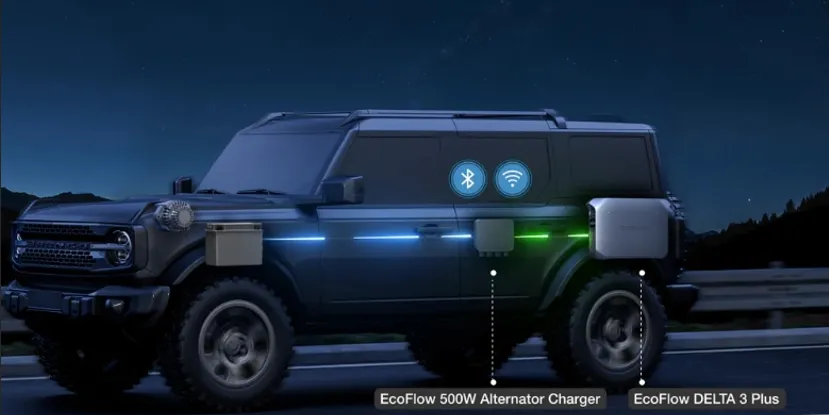Electricity makes outdoor activities more enjoyable, powering everything from garden lights to camping equipment. However, using power outside comes with unique risks that indoor setups don’t face. Rain, moisture, tripping hazards, and overheating can turn convenience into danger if proper precautions aren’t taken. Each year, preventable electrical accidents occur because people underestimate outdoor hazards or use indoor-rated equipment outside. Whether you’re hosting a backyard party, working on a DIY project, or camping off-grid, understanding outdoor electrical safety protects you, your family, and your devices. In this article, we’ll explore how to use outdoor power safely while avoiding common mistakes.
Also Read: Staying Ahead of Vehicle Trouble Just Got Easier
Choosing the Right Outdoor Power Equipment
Weatherproof & GFCI-Protected Outlets & Extension Cords
Not all power equipment is designed for outdoor use. Standard indoor extension cords and power strips can become serious hazards when exposed to rain or humidity. Always look for cords and outlets labeled “weatherproof” or “outdoor-rated,” which have thicker insulation and protective covers to prevent water damage. GFCI (Ground Fault Circuit Interrupter) outlets are especially important outdoors—they instantly cut power if they detect electricity flowing through an unintended path (like water or a person), preventing shocks. For permanent outdoor installations, hire an electrician to install proper waterproof enclosures. When using extension cords, choose heavy-duty models with three-prong plugs and ensure they’re rated for your device’s wattage.

Solar Generators vs. Gas-Powered Generators: Which is Safer?
When you need portable power beyond what extension cords can provide, generators are a common solution—but not all are equally safe. Gas-powered generators produce carbon monoxide, requiring placement at least 20 feet from living areas with proper ventilation to avoid poisoning. They also pose fire risks from fuel spills and hot exhaust. In contrast, solar-powered generators (battery stations charged by solar panels) eliminate these hazards—they produce no fumes, run silently, and have no flammable fuel. While gas generators typically offer higher wattage, solar options are safer for most recreational uses like camping or backyard events.
Proper Setup & Placement for Outdoor Power Sources
Keeping Cords Dry & Elevated to Avoid Water Hazards
Water and electricity are a dangerous combination, so keeping connections dry is crucial. Use waterproof cord covers or elevate cords off the ground with hooks or poles to prevent puddle contact. If you must run cords across walkways, secure them with tape or protective cable ramps to avoid tripping while maintaining dryness. For temporary setups like parties, consider battery-powered options instead of running long cords outdoors. When using power near pools or fountains, ensure all equipment is specifically rated for wet locations—standard outdoor ratings may not be enough for direct splash zones. After rain, inspect cords for moisture before use, and never handle electrical equipment with wet hands.
Safe Distance from Flammable Materials & High-Traffic Areas
Overheated electrical equipment can ignite nearby materials like dry grass, tents, or patio furniture. Keep generators, power stations, and transformers at least 3 feet away from flammables, and never place them in enclosed spaces (like a tent or garage) where heat can build up. Position equipment where it won’t be bumped or knocked over—especially important with gas generators that could spill fuel. If children or pets will be nearby, use physical barriers or enclosures to prevent accidental contact with hot surfaces or live wires. For events, route cords along walls or fences rather than across open areas where they might get damaged.
Essential Safety Practices When Using Outdoor Electricity
Never Overload Circuits – Know Your Power Limits
Outdoor circuits often support fewer devices than indoor ones. Overloading an extension cord or outlet can cause overheating, melting wires, or even fires. Check the wattage ratings on your devices and add them up before plugging in—most outdoor circuits handle 15–20 amps (about 1,800–2,400 watts). High-power devices like space heaters or grills may need a dedicated circuit. Use a single, high-quality extension cord per device instead of daisy-chaining multiple cords, which increases resistance and fire risk. If cords feel warm to the touch or lights dim when devices turn on, you’re likely exceeding safe capacity.
Regular Inspections for Damaged Wires & Connections
Outdoor conditions can degrade electrical equipment faster than indoor use. Before each use, inspect cords for fraying, cracks, or exposed wires—even minor damage can cause shocks or short circuits. Check plugs and outlets for corrosion or loose connections, which indicate moisture exposure. Test GFCI outlets monthly by pressing their “Test” buttons to ensure they trip correctly (reset them afterward). Replace any faulty equipment immediately—temporary fixes like tape aren’t safe for outdoor repairs. After storms or extreme temperatures, double-check all equipment since weather can worsen existing damage. These quick checks take minutes but prevent most outdoor electrical accidents.
Emergency Preparedness for Outdoor Power Issues
Despite precautions, emergencies can happen. Always keep a fire extinguisher rated for electrical fires (Class C) nearby when using outdoor power. Teach household members how to shut off power at the main breaker in case of emergencies. If someone receives a shock, don’t touch them directly—turn off the power source first or use a non-conductive item (like a wooden broom) to separate them from the current. For solar or battery systems, know how to quickly disconnect panels or batteries to stop power flow. Having an emergency plan ensures quick, safe responses to unexpected issues.
Conclusion
Outdoor power adds comfort and fun to activities but demands respect for safety. By choosing weatherproof gear, positioning equipment carefully, and following load limits, you can avoid most electrical hazards. For reliable off-grid power without fumes or noise, systems like the EcoFlow Dual battery system provide a safe, portable, and maintenance-free energy solution for appliances—featuring advanced battery management and protection against overvoltage, overheating, and short circuits. With these precautions, you’ll enjoy outdoor electricity’s benefits while keeping risks at bay.



